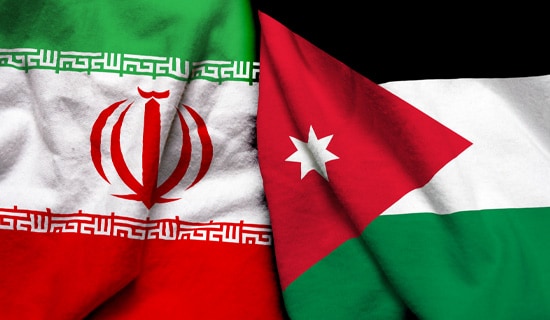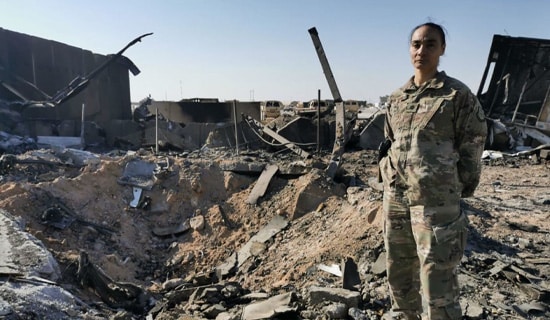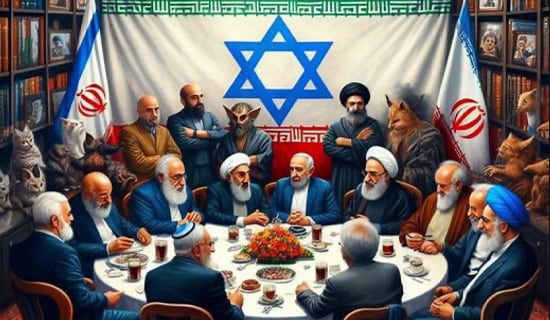
Baroness Sayeeda Warsi, the chair of the UK's Conservative Party and a cabinet minister, recently visited Pakistan to assess the damage caused by the devastating floods. During the course of the visit, she was interviewed in Urdu on the 'Reporter' program on the Dawn News television channel.[1]
Warsi, who is of Pakistani origin, answered a range of questions on the floods, international aid for flood victims, Pakistan-UK relations, the Iraq war, "Britishness," and the hijab controversy in Europe (the words hijab, niqab, and burqa are interchangeable and refer to an Islamic veil, with jilbab being another type of veil that covers a Muslim woman from top to bottom).
The 'Reporter' program translated and posted the transcript of the interview on www.dawn.com, the website of the Dawn media group. In the interview she was asked for her views on the "all-encompassing face niqab" and whether it is "restrictive" for Muslim women. Baroness Warsi responded that "no country has the right to tell a woman what she should wear and what she should not wear."
Following are excerpts from the interview:[2]
"Being a Muslim, I'm Proud of It; Being Born in Britain, Being Raised There, Being a Cabinet Minister in that Society, I'm Very Privileged and I'm Proud of It"
Q: "Baroness Sayeeda Warsi, you are the most powerful woman in Britain and are also a Muslim woman. In it, there are some identity issues which might haunt you, especially when people like Anjem Chaudhry of [British Islamist organization] Al-Muhajiroun say that people like you are like coconuts, brown on the outside and white on the inside. How do you deal with the identity crisis? When you come to Pakistan expectations from you are different, while when you are in Britain the expectations are different, at the same time being of Pakistani descent and having a Muslim identity. How do you balance all of this?"
Sayeeda Warsi: "I think the accolade I got of being the most powerful Muslim woman [in Britain] is very flattering. But my daughter said to me, yes mother you are the most powerful Muslim woman but it is still you who makes daal paratha [lentil and bread] in the house at sehri [pre-fast meal during Ramadan] time, not anyone else. So I think that there are roles that women still have to adopt and I think that I'm very comfortable with those very different roles.
"I think the Pakistani origin identity I have, I'm proud of it. Being a Muslim, I'm proud of it. Being born in Britain, being raised there, being a cabinet minister in that society, I'm very privileged and I'm proud of it. And I don't feel that in all those there should be inconsistencies. It is not necessary that if you're a Muslim you can't be a British, or if you're a British you can't be a Muslim or from a Pakistani origin. I think it's about how comfortable you are in your identity and how openly and with pride you can say that's fine this is what I am. And I think saying in front of the Downing Street, I'm proud to be a cabinet minister and wearing shalwar kameez [dress worn by South Asian women], saying I'm also proud to be a Pakistani and openly saying I'm of the Muslim faith and proud to do that, I don't think that that's an identity crisis.
"Yeah, there are idiots in Britain… who have an issue of identity crisis themselves, who think that they are the only ones who can raise the voice of Islam or it is only they who can promote their culture, but in reality those people are a blotch on the name of Islam. They bring to my religion, to my beautiful religion, a bad name and bring a bad name to my culture and they represent all those characteristics which I think are not part of our religion or our culture."
Q: "How would you define Britishness? What is Britishness?"
Sayeeda Warsi: "Britishness is a feeling of tolerance; it is a feeling of allowing people to live their lives the way they wish to live their lives. It's about fairness, it's about meritocracy, it's about a dream where somebody like me, a laborer's daughter, can be born in that country whose parents went there with 200 rupees in their pockets and they set up multi-million businesses there. It's people like me whose families have no political history, no political background."
SUPPORT OUR WORK

"It is Not the Right of Some Middle-Aged British Man to… Tell a Muslim Woman, or any Woman, that Your Skirt is Too Short… Or Your Niqab is Too Dark"
Q: "Equal opportunity, merit, tolerance, you mentioned all these things. But in Europe and also Britain there is currently a move going on about burqa, that it should be banned and the all-encompassing face niqab should also be banned. What are your views on this? Do you think this should take place? Do you feel it is restrictive, and all the things you mentioned about Britishness, do you think this merges with those things or not?"
Sayeeda Warsi: "My statements about burqa have been very very clear right from the outset that no country has the right to tell a woman what she should wear and what she should not wear. This is a woman's choice [of] what dress she adopts for herself. If she wants to wear shalwar kameez or she wants to wear a trouser suit or she wants to wear a burqa this is her individual choice, and that's Britishness, about allowing people to choose what they want to wear.
"I think, and I also said this before, that it is not the right of some middle-aged British man to stand up and tell a Muslim woman, or any woman, that your skirt is too short, your kameez [shirt] is too tight, your dupatta [loose scarf-like piece of cloth kept by South Asian girls as a sign of modesty] is too long or your niqab is too dark. That is none of their business, that is a choice for women to make and it is an instinctively British right that women have these rights to make these choices and it is an instinctively Islamic choice that women make choices in their life."
Q: "America has announced a timeframe for the war in Afghanistan. Would there be talk on the withdrawal of British troops also? What is the thinking of the Conservative Party in this regard, as you are also the chairperson of the Conservative Party?"
Sayeeda Warsi: "I think our Prime Minister [David Cameron] has said very clearly that there has to be an exit strategy with regards to Afghanistan. He has already given some indication, time lines like 2015. And I think there is an acceptance that Britain and other foreign powers are not there to stay permanently in Afghanistan and I'm very delighted that there's a very clear indication that slowly the military operation there would cease."
Q: "And can there be talks with the Taliban also as part of an exit strategy?"
Sayeeda Warsi: "I think we've always said that there are some sections of Taliban with whom discussions can be held."
"I'm a Lawyer and I had Real Concerns Regarding the Legality of the Basis of This War [in Iraq] According to International Law"
Q: Do you think that if Tony Blair had not supported America in Iraq and Afghanistan, then the situation which we face today, the threat that Britain, Europe, and Pakistan are facing, things would have been different."
Sayeeda Warsi: "I don't know whether I can predict that, but what I can say for sure is that, that war was wrong. I was against the war in Iraq. I, like millions of other people, demonstrated in the streets that we should not go to this war.
"By profession I'm a lawyer and I had real concerns regarding the legality of the basis of this war according to international law. I was against the war then, and I still feel that we shouldn't have gone to Iraq at that time."
Q: "Do you think with the coming [to power] of Conservative Party with people like you part of it, the image of Britain as a lackey of the Americans in the war on terror would change in the Muslim countries? Do you think with these policies of Conservative Party, as you mentioned that you were against the war and being the Chairperson that's a very strong message, the image of Britain among Muslim countries and especially Pakistan would improve?"
Sayeeda Warsi: "I think that … I can only comment on my government and my coalition government and our approach to international relations. I can say this for sure that the role that I have is that if there's a misunderstanding between Pakistan and Britain then that misunderstanding should be removed and the understanding should be improved, and the many years of friendship we have should be made more entrenched."
Q: "How can that friendship be made more entrenched when David Cameron goes to India and gives a statement that Pakistan is pursuing a double policy on the war on terror [by supporting the Taliban as well as the West]?"
Sayeeda Warsi: "I think if you're good friends with a country, then I think and even you would know that, that good friends sometimes tell each other things which they don't like. But the real test of friendship is that when you are undergoing the most difficult times, who stands shoulder to shoulder with you. And I think when sadly recently Pakistan faced this difficult time of floods, Britain was the first one to respond. We were the first ones to give a response and also the ones to give the biggest response.
"Not only have we responded ourselves but have also asked the world to stand by Pakistan. And I think if someone has any doubt in his mind about the friendship between Pakistan and Britain, he should look at our response and have confidence that this friendship is strong, it is much stronger than any individual statement."
[1] The videos of the interviews can be viewed at http://blog.dawn.com/2010/08/26/qa-with-baroness-warsi .
[2] www.dawn.com (Pakistan), August 26, 2010.




